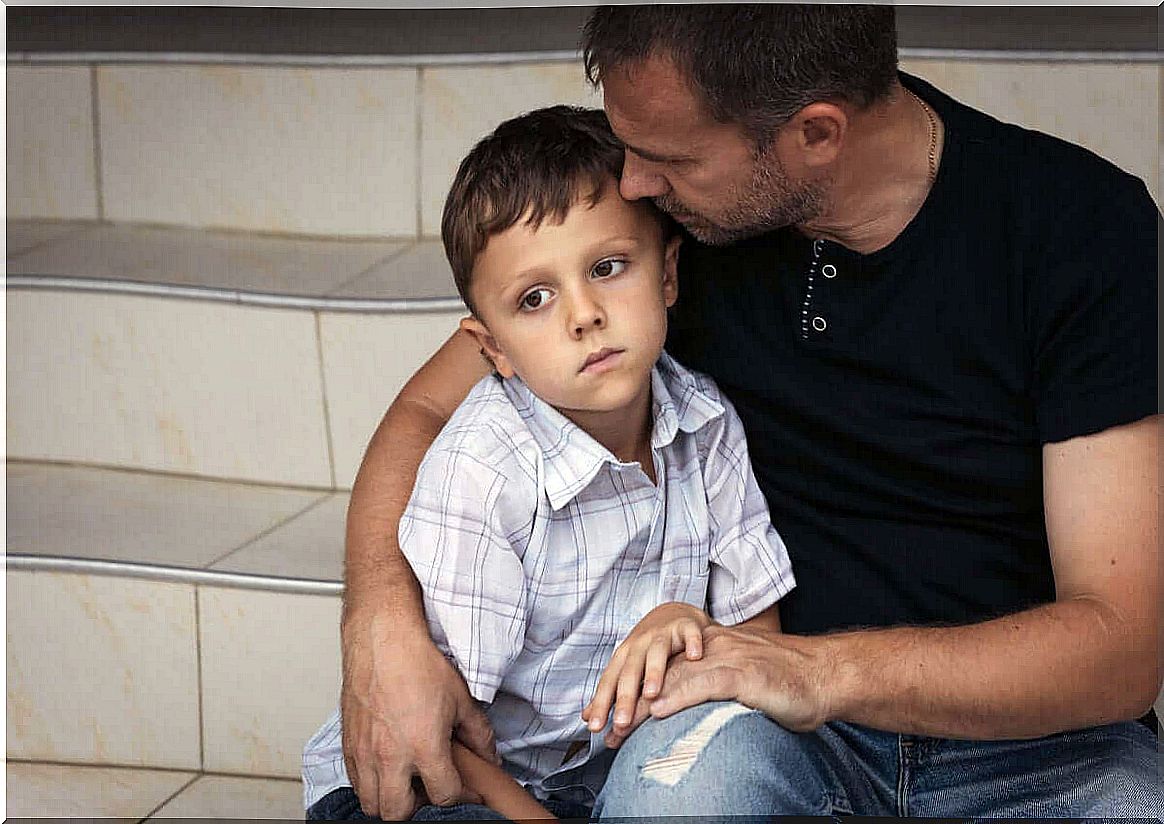4 Subtle Forms Of Psychological Abuse

Subtle forms of abuse are very dangerous due to the complexity of their identification. These seemingly harmless behaviors gradually weaken victims, creating important psychological consequences. But what are these subtle forms of abuse like and what do they consist of?
In this article, we’ll explain four subtle forms of abuse that can occur in family or relationship contexts. In addition, we will talk about the clues that can help us to identify them, paying special attention to the consequences they have on victims.
Subtle Forms of Abuse
It is common that, when talking about physical abuse, reference is made to the most obvious forms of identification. On the contrary, the subtle forms of psychological abuse are characterized by being veiled, ambiguous and susceptible to a more generous interpretation in relation to the aggressor’s interests.
Research indicates that subtle forms of abuse are far more common than others that leave more obvious signs, such as physical abuse. However, the damage caused by these subtle forms of abuse can go deeper in the long term.

The difficulty in identifying the aggression, the repressed feelings and the silence they produce make the intervention come later and, therefore, it is more difficult to get out of the situation or to reverse it.
Subtle forms of abuse can appear to be seemingly harmless comments or behavior. Some of the ways in which they appear are defamation, humiliation, forms of blackmail or control. This type of aggression can occur in different contexts, such as within a love relationship, between parents and children, or even in other types of bonds, such as friendship.
On the other hand, these subtle forms of abuse are characterized by generating very specific feelings and sensations in the victim. They often make the victim feel unlovable, guilty about every situation, or strongly suspicious.
1. The law of ice
The so-called “law of ice” or “law of silence” is one of the subtle forms of abuse. It is characterized by performing actions aimed at ignoring the victim, such as withdrawing the word from him for a while or pretending that he is not heard or seen. This is blackmail in relation to the victim, who will not get rid of this indifference until he bows to the other’s wishes.
The law of ice reveals the aggressor’s emotional immaturity and lack of communication skills. The consequences for the victim can be extremely harmful. Being ignored leads to feelings of fear, sadness, anger and, above all, a lot of anguish. The victim blames himself for the situation, for not understanding why he is being treated in this way.
2. Gaslighting
Coined as gaslighting by Hollywood, this is one of the more subtle forms of abuse. It is characterized by the aggressor’s effort to make the victim doubt their own criteria, judgments or even their own perception or memory.
In this form of blackmail, the aggressor refers to the victim imagining or exaggerating certain situations experienced, consciously or unconsciously. Thus, in an argument, the victim will fail to state his position when a doubt arises within him if the experience is not really what he thought or remembered. A situation that, repeated over time, destroys the victim’s trust, leaving her in a situation of extreme vulnerability in the face of the aggressor.
The consequences of these subtle forms of abuse include strong feelings of dependency, feelings of depersonalization and loss of control. Victims of gaslighting often report having the feeling of going crazy or losing control of their lives.
3. Overprotection
Overprotection has nothing to do with protection, quite the opposite. In these subtle forms of abuse, the care provided has limiting effects on victims. In other words, this protection is detrimental to the victim’s autonomy, and it is a neglectful form of parenting.
Overprotection takes many forms, from low capacity to set clear limits, vetoing one’s own initiatives, or preventing any kind of frustration at all costs. The consequences of these actions generate in the victim feelings of fear, dependence and low tolerance for frustration that limit their daily lives.
4. The conflict of loyalty
Loyalty conflict is one of the subtle forms of abuse that, although it can occur in many contexts, is often related to the separation of couples with children. In the conflict of loyalty, separated parents fight for the child to stand unconditionally with one of them, without forgetting that loyalty to one implies disloyalty to the other.
It is common for parents to devalue the figure of the other in front of their children, put the child in the role of judge or make him feel guilty for liking the other parent.
The consequences of this type of abuse in children are associated with symptoms of anxiety, somatization, and can seriously compromise their emotional stability.

Subtle Forms of Abuse: The Small Wounds
Subtle forms of abuse are characterized by being ambiguous. However, they are more common than other, more egregious types of abuse, and can have very detrimental effects on victims in the long run. These conditions can worsen the victims’ prognosis.
The so-called law of silence is based on behaviors that aim to ignore the victim in order to achieve some kind of change in their behavior. Likewise, gaslighting directly attacks people’s trust in their criteria. These subtle forms of abuse, common in a relationship context, cause fear, anger and anguish in victims.
Overprotection and what is known as a loyalty conflict are more common in family contexts, from parent to child. Parents create protective behaviors that limit their children’s autonomy and place them as helpless. In the conflict of loyalty, both parents pressure their children to choose one parent or the other.
Subtle forms of abuse wear out victims. In other words, the reproduction of small actions that, by themselves, would not cause greater damage ends up, when maintained over time, causing deep wounds.
They are corrosive formulas whose greatest danger lies in the difficulty of identifying them. Therefore, information is one of the most important variables in psychological prevention plans.









